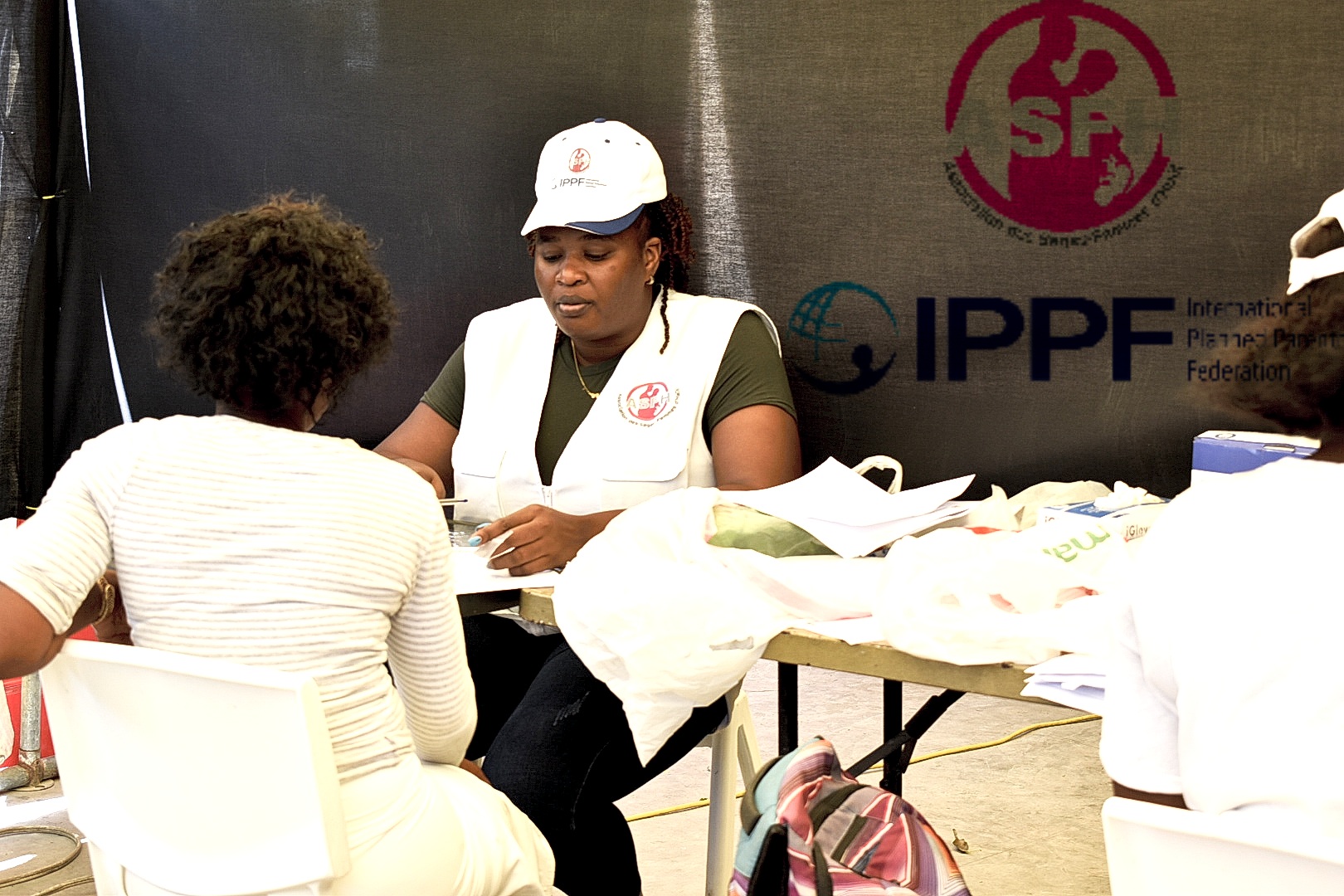Latest press releases
A selection of stories from across the Federation

Netherlands
Rutgers triumphs in landmark court case against lies, online hate and disinformation
Rutgers, the Netherlands’ leading sexual and reproductive health expert and IPPF’s Member Association, has today secured a landmark legal win against an ultra-conservative group.
For media enquiries


| 26 September 2024
IPPF Statement on Escalation of Violence Against Health Care Workers
ENOUGH IS ENOUGH! Nearly a year into targeted, reproductive violence against Palestinian women and girls, and the bombing of our reproductive health site in Gaza; IPPF readies itself for a fresh wave of attacks against its health workers and clinics in Lebanon. "Our healthcare workers in Lebanon are under attack. 70% of them are women. The facilities where women come and access life-saving reproductive services have already been destroyed in Gaza. Now the world is forced to watch another horrific spectacle of the same war crimes being committed in Lebanon.” “We demand all governments - including the U.S., Germany, UK and others - that are supplying these weapons that kill, maim and displace our fellow healthcare workers to stop. We demand an end to the killing of ALL civilians; we will not be silenced, we will continue to collect evidence and talk about these crimes against our collective humanity,” said Dr. Alvaro Bermejo, Director General, International Planned Parenthood Federation. Israel's indiscriminate attacks on Gaza have had devastating consequences for women's reproductive health. The attacks on our own health site, on hospitals and maternal health sites significantly limited access to care. We are experiencing this in Sudan too; clinics destroyed, men’s use of violence against our health workers, and rape used as a weapon of war. In Palestine, obstetric and reproductive violence have been evidenced as a feature of Israel’s violence; we are urgently ringing all alarm bells before these crimes are repeated against women and girls in Lebanon. “Our staff are terrified; they are running for their lives. Contact with our team is limited - health care workers are too scared to use their phones. We fear not just for our colleagues; but for every single woman and girl. Once again, the very essence of humanity is at stake, as though women, children, and all human beings are merely numbers,” said Lina Sabra, Executive Director of IPPF Member Association in Lebanon, SALAMA. Lebanon is experiencing its deadliest days since the country’s civil war ended in 1990. The acceleration in killing over the past few days amid the escalation between Israel and Hezbollah is only made possible by powerful countries with a vested interest in the continuation of this war. We remind all parties that acts of obstetric and reproductive violence have been prosecuted as crimes against humanity.

| 19 June 2024
IPPF Statement on the Ongoing Violence in Haiti
Haz click aquí para leer este posicionamiento en español The International Planned Parenthood Federation (IPPF) is deeply concerned about the escalating violence and political instability in Haiti, particularly its disproportionate impact on women and girls since March 2024. This crisis is expected to leave 3,000 pregnant women without essential medical care, leading to nearly 450 women experiencing life-threatening childbirth complications. With almost 580,000 Haitians displaced, women and girls are experiencing an alarming surge in sexual and gender-based violence (SGBV), including rampant sexual assaults, torture, and collective rape by armed groups. From January to March 2024, there were 1,793 SGBV incidents reported. Conflict-related insecurity has also significantly increased negative coping mechanisms, contributing to the rise in SGBV, as well as sexually transmitted infections and HIV. The ongoing violence is preventing access to essential sexual and reproductive healthcare services, endangering the lives of mothers and newborns. Our partner in Haiti, the Haiti Midwives Association, informed us, ‘the gangs prohibit the movement of motorcycles and pedestrians, threatening and sometimes shooting in the air to terrorise us further. Due to these difficult conditions, fewer and fewer patients are attending the hospital, whether for prenatal consultations, deliveries or postnatal care.” This inaccessibility has led to a significant increase in maternal and infant mortality. Eugenia López Uribe, Regional Director of the IPPF Americas & the Caribbean, said, “Humanitarian aid must be granted access through local organisations, such as our partner the Haiti Midwives Association, and their wellbeing must be guaranteed in this process. Women and girls can no longer wait! Our partner has provided access to vital emergency services such as pregnancy, childbirth and postpartum care, as well as care after sexual violence for 20 years. However, since February, they have been forced to stop their activities because of the imminent risks they face as women living in Port-au-Prince and surrounding areas.” On this International Day for the Elimination of Sexual Violence in Conflict, IPPF calls for zero tolerance toward any form of SGBV and demands the immediate protection of Haitian women, children, and those most at risk. We strongly call for unhindered humanitarian access to allow aid into Haiti. This aid must be designed and controlled by local NGOs and aid workers, and any foreign peacekeepers must safeguard and protect local communities - in particular their sexual and reproductive rights - so mistakes of the past are not repeated. Let’s not forget: Haiti's poverty and instability has been shaped by decades of foreign occupation and colonialism. The international community owes Haiti more than mere condolences; they owe an unwavering commitment to a future where human rights, including sexual and reproductive health rights are respected and protected, and nobody is left behind.
















